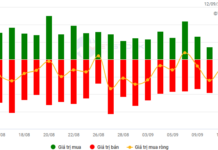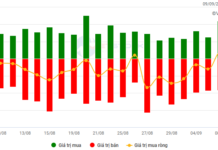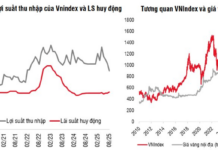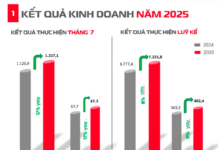Numerous Risks in Project Investment Transfers
The Ministry of Finance’s report to the National Assembly Standing Committee on the implementation of policies and laws on managing the real estate market and developing social housing from 2015 to the end of 2023 revealed loopholes, issues, and limitations in capital mobilization for commercial housing project construction, as well as in investment and real estate transfer processes.
Regarding capital mobilization for commercial housing project construction, the Ministry of Finance stated that previously, under the housing law, investors could sign contribution contracts or cooperation investment contracts with organizations and individuals to invest in building houses. The contributing or cooperating investors would then receive a share of the housing products based on the agreed contribution ratio.

Illustration: Limitations and issues in capital mobilization for commercial housing project construction.
However, under current regulations, investors are not allowed to mobilize capital by dividing housing products or offering registration, deposit, or home purchase priority to the mobilized capital providers. The exception is when contributing capital to establish a new legal entity to be assigned by the State as the investor of a housing construction project.
After completing the foundation of the house as per Decree 71/2010/ND-CP dated June 23, 2010, investors can sign sale contracts for future houses and works to replace the previously signed contribution contracts. Only after signing these sale contracts can the contributing parties transfer the sale contracts for future houses and works.
Nevertheless, in reality, state agencies have been unable to monitor investors who sign contracts (in various forms) with individuals. These cases are only discovered when individuals wish to transfer their contracts and submit their dossiers to tax authorities.
Additionally, there have been cases where investors receive and withhold personal income tax from buyers when transferring contribution contracts but fail to remit this tax to the state budget.
Concerning investment project transfers, the Ministry of Finance stated that the taxpaying entity is the legal entity that transfers the right to invest in and exploit a part or the whole of an investment project to another organization or individual through enterprise division, merger, or conversion, or through capital contribution transfer, subject to the laws on land, investment, housing, and real estate business.
If the transferring organization is a state-owned enterprise, it must also comply with the laws on managing and using state capital invested in production and business in enterprises and on managing public assets.
According to the Ministry of Finance, this process entails several risks, including under-declaration of transfer prices, resulting in state budget revenue losses; project transfers before meeting the prescribed conditions; asset losses due to non-auction sales of state assets; and land use for purposes other than those specified.
In the case of individuals who are founding contributors or shareholders initially allocated land by the state with land use levies or land rent (paid annually or one-time), after several transfers of contributed capital shares or stocks, the founding contributors or shareholders may be entirely replaced.
In reality, while the enterprise executing the investment project remains the same (with the same tax code), the contributors or shareholders who own the enterprise have changed. Essentially, this is a sale of a real estate project through the transfer of contributed capital or founding shareholder stakes.
“The above-mentioned activities of taxpayers pose tax-related risks and cause losses to the state budget, as well as risks of violating land management regulations,” the Ministry of Finance’s report stated.
Difficulty in Verifying the Actual Value of Transfer Transactions
The Ministry of Finance also pointed out several limitations and issues regarding real estate transfers.
Specifically, regarding transfer prices, taxpayers declare transfer prices that do not reflect the actual transaction value. Buyers and sellers use handwritten contracts signed by both parties, stating the actual transaction price to prevent disputes in court.

Illustration: It is challenging for authorities to verify the actual value of real estate transfer transactions, according to the Ministry of Finance.
Consequently, it is challenging for state authorities, especially tax agencies that currently lack investigative functions, to verify the actual value of real estate transfer transactions.
Regarding contracts for the transfer of sale contracts for future houses and works, the value of the sale contracts for the second party is often equal to the purchase price from the investor, or when the house has been assigned a number, the investor is willing to declare a lower price than the purchase price. This also leads to a loss of revenue for the state budget.
In terms of the method of buying and selling real estate and real estate projects, investors agree to allow buyers to re-sign contracts for future houses with new buyers to avoid personal income tax on real estate transfers.
For real estate transfer authorization, the taxpayer transferring the real estate does not sign a transfer contract but instead signs an authorization contract (where the authorized person has the right to possess, use, and dispose of the real estate) to avoid personal income tax on real estate transfers.




































